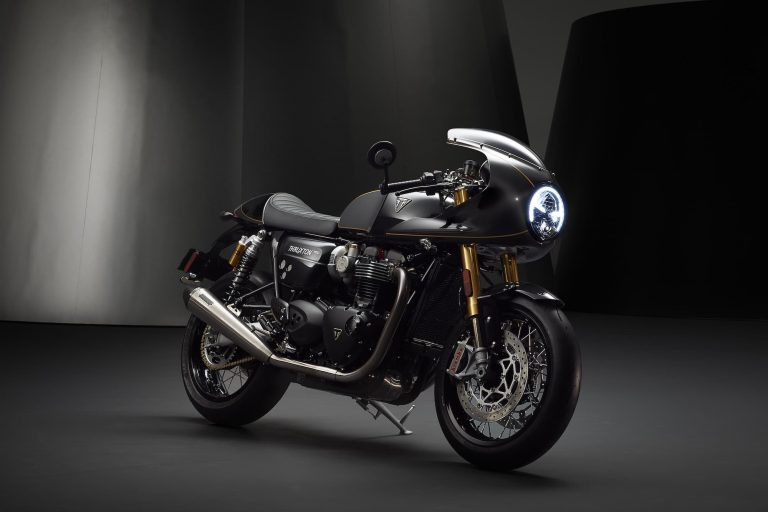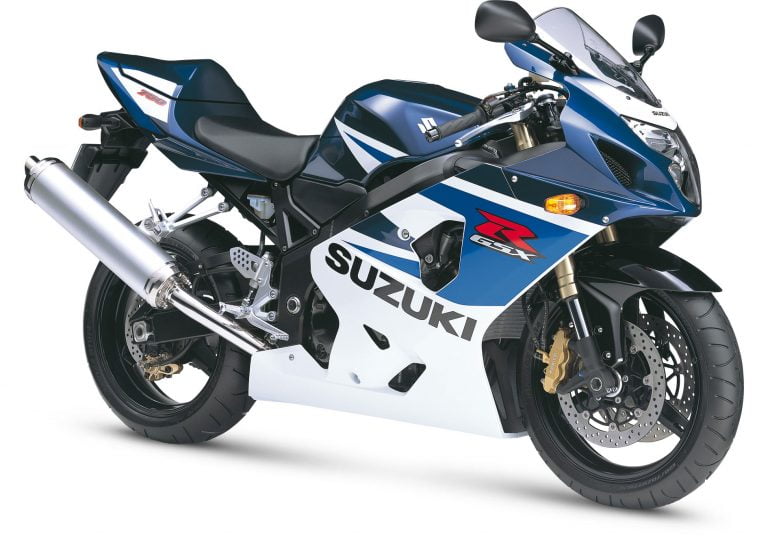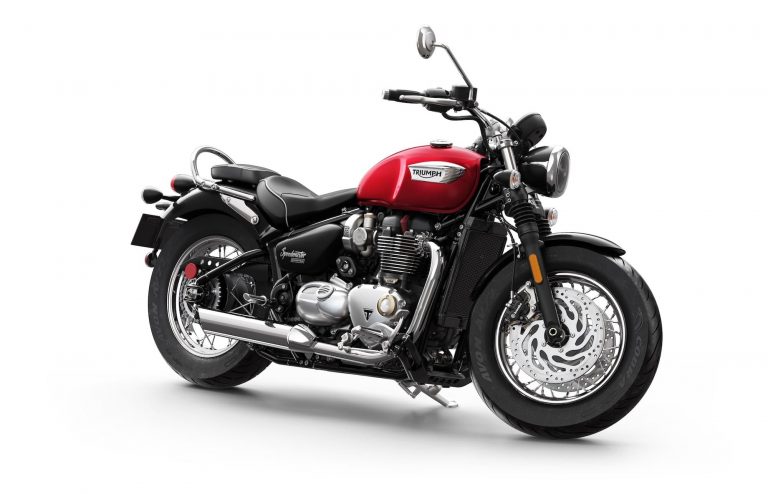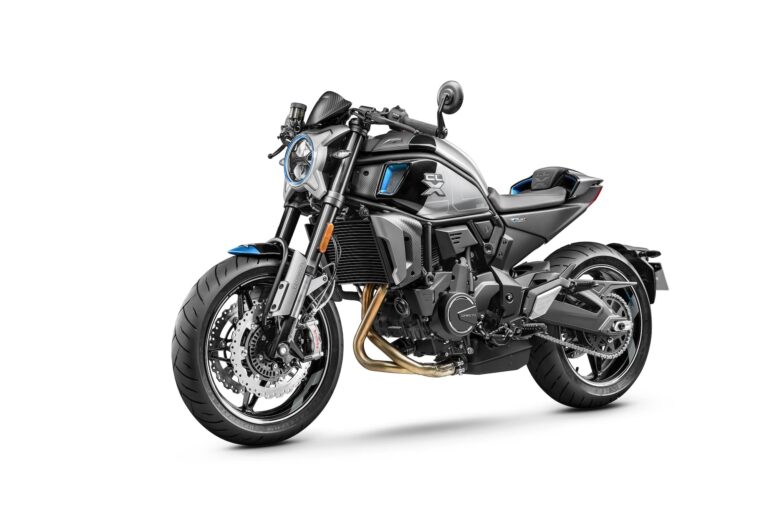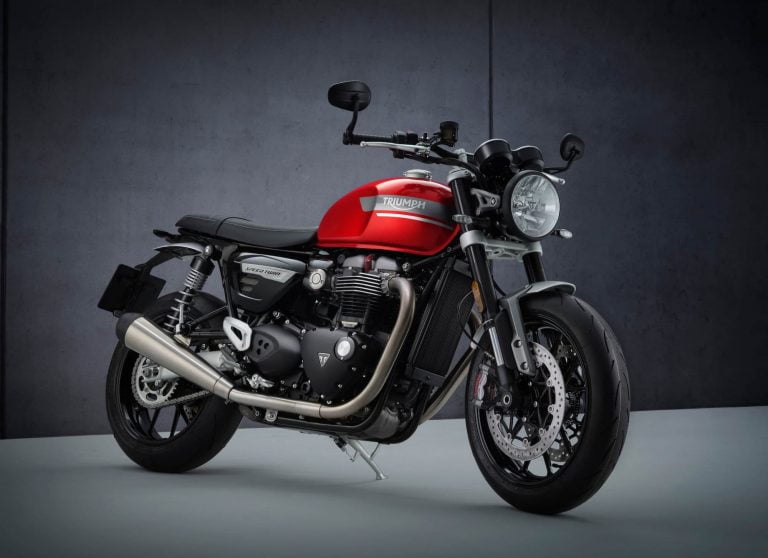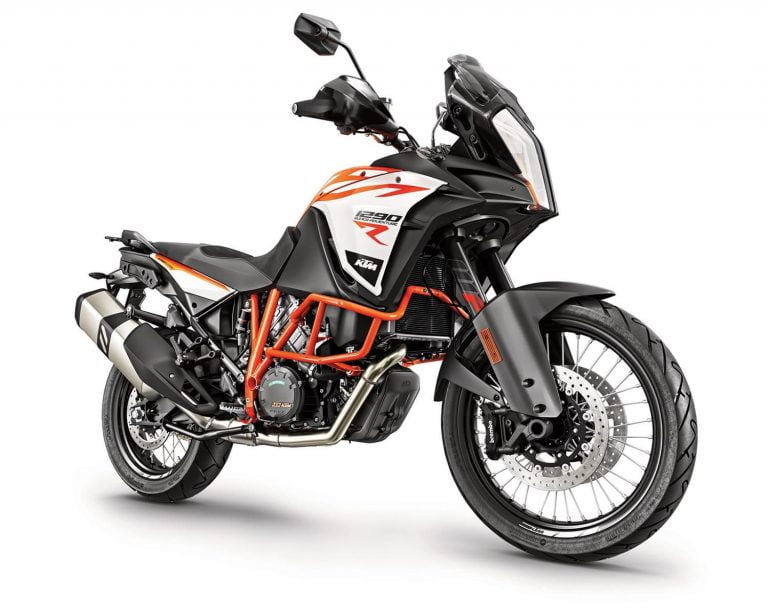Kawasaki Ninja ZX-6RR (599cc, 2003-2007) Maintenance Schedule and Service Intervals
This is the maintenance schedule with associated service intervals for the Kawasaki Ninja ZX-6RR made between 2003-2007.
The ZX-6RR was the 599cc racing stablemate to the Kawasaki Ninja ZX-6R 636 made during the same period. Whereas the “cheater” displacement ZX-6R 636 motorcycle was the street bike (that you still rev the snot out of), the ZX-6RR was the bike dedicated to the track. It’s a similar motor, just with less midrange, but almost as much top end power.
The maintenance schedules for the ZX-6RR and its contemporary ZX-6R are quite similar. But of course, if you’re taking your Kawasaki ZX-6RR to the track, you’ll want to make sure you’re feeding it the best oils, coolants, and brake pads.
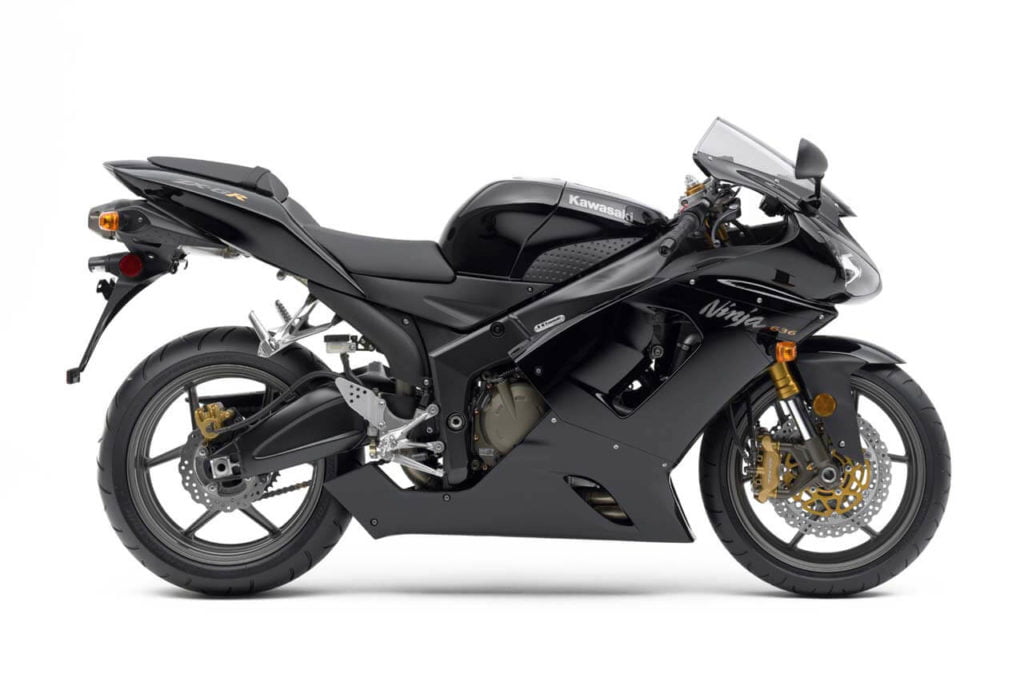
This site has links for things like oil and spark plugs from which we earn a commission (which unfortunately nobody can save, not even us). If you appreciate this work, then please use those links. Thanks!
Maintenance Schedule for Kawasaki Ninja ZX-6RR
Below is the maintenance schedule for the Kawasaki Ninja ZX-6RR.
The maintenance for the 2004 Kawasaki Ninja ZX-6RR is broken into multiple sections for convenience.
Notes:
- For higher odometer readings, repeat at the frequency interval established here
- When inspecting items, replace, adjust, or torque if necessary.
- The break-in schedule is not shown
Core maintenance
| km x 1000 | 6 | 12 | 18 | 24 | 30 | 36 | |
|---|---|---|---|---|---|---|---|
| mi x 1000 | 4 | 7.5 | 12 | 15 | 20 | 24 | Every |
| Engine oil – change | ✓ | ✓ | ✓ | ✓ | year. More often if riding in harsh conditions. | ||
| Oil filter – replace | ✓ | ✓ | ✓ | ✓ | year | ||
| Air cleaner element: replace | ✓ | ✓ | More often if riding in dusty / wet conditions | ||||
| Spark plug–clean and gap | ✓ | ✓ | ✓ | ✓ | ✓ | ✓ | |
| Engine vacuum sync: inspect | ✓ | ✓ | ✓ | ||||
| Valve clearance: inspect | ✓ | ||||||
| Brake fluid (front and rear) – change | ✓ | ✓ | 2 years | ||||
| Brake hoses – replace | ✓ | 4 years | |||||
| Rubber parts of master cylinder and caliper | ✓ | 4 years | |||||
| Fuel hoses – replace | ✓ | 4 years | |||||
| Coolant – change | ✓ | 3 years | |||||
| Radiator hoses and O-rings – replace | ✓ | 3 years |
Brakes, Cooling, and Other Engine Maintenance
| km x 1000 | 6 | 12 | 18 | 24 | 30 | 36 | |
|---|---|---|---|---|---|---|---|
| mi x 1000 | 4 | 7.5 | 12 | 15 | 20 | 24 | Every |
| Brake hoses (no damage): inspect | ✓ | ✓ | ✓ | ✓ | ✓ | ✓ | |
| Brake hoses (connections): inspect | ✓ | ✓ | ✓ | ✓ | ✓ | ✓ | |
| Brake operation (effectiveness, no drag): inspect | ✓ | ✓ | ✓ | ✓ | ✓ | ✓ | year |
| Brake pads (wear) – inspect | ✓ | ✓ | ✓ | ✓ | ✓ | ✓ | More often if riding in dusty / wet conditions |
| Brake fluid level – inspect | ✓ | ✓ | ✓ | ✓ | ✓ | ✓ | 6 months |
| Fuel hoses (no leak): inspect | ✓ | ✓ | ✓ | year | |||
| Fuel hoses (no damage): inspect | ✓ | ✓ | ✓ | year | |||
| Fuel hoses connections: inspect | ✓ | ✓ | ✓ | year | |||
| Coolant level: Inspect | ✓ | ✓ | ✓ | ||||
| Radiator hoses (no leak): inspect | ✓ | ✓ | ✓ | year | |||
| Radiator hoses (no damage): inspect | ✓ | ✓ | ✓ | year | |||
| Radiator hoses: inspect | ✓ | ✓ | ✓ | year | |||
| Throttle control system: inspect | ✓ | ✓ | ✓ | ✓ | ✓ | ✓ | |
| Side stand switch (operation): inspect | ✓ | ✓ | ✓ | year | |||
| Engine stop switch (operation): inspect | ✓ | ✓ | ✓ | year | |||
| Chassis parts: lubricate | ✓ | ✓ | ✓ | year | |||
| Bolts and nuts tightness: inspect | ✓ | ✓ | ✓ | ||||
| Air suction valve: inspect | ✓ | ✓ | ✓ | ✓ | ✓ | ✓ | |
| Evaporative emission control system: inspect (c) | ✓ | ✓ | ✓ | ✓ | ✓ | ✓ | |
| Idle speed: inspect | ✓ | ✓ | ✓ |
Steering, Wheel, and Chassis Maintenance
| km x 1000 | 6 | 12 | 18 | 24 | 30 | 36 | |
|---|---|---|---|---|---|---|---|
| mi x 1000 | 4 | 7.5 | 12 | 15 | 20 | 24 | Every |
| Drive chain wear: inspect | ✓ | ✓ | ✓ | ||||
| Drive chain guide wear: inspect | ✓ | ✓ | ✓ | ||||
| Steering play – inspect | ✓ | ✓ | ✓ | year | |||
| Steering stem bearings: lubricate | ✓ | 2 years | |||||
| Hydraulic brake system (no leaks): inspect | ✓ | ✓ | ✓ | ✓ | ✓ | ✓ | |
| Brake light switch (operation): inspect | ✓ | ✓ | ✓ | ✓ | ✓ | ✓ | |
| Tire (air pressure): inspect | ✓ | ✓ | ✓ | ||||
| Wheels/tires (no damage): inspect | ✓ | ✓ | ✓ | ||||
| Tire (tread wear, no abnormal wear): inspect | ✓ | ✓ | ✓ | ||||
| Wheel bearings (no damage): inspect | ✓ | ✓ | ✓ | ||||
| Front forks/rear shock absorber (damping, smooth stroke): inspect | ✓ | ✓ | ✓ | ||||
| Front forks/rear shock absorber (no oil leak): inspect | ✓ | ✓ | ✓ | year | |||
| Uni-trak bearing: lubricate | ✓ | ||||||
| Uni-trak rocker arm (operation): inspect | ✓ | ✓ | ✓ | ||||
| Uni-trak tie rods (operation): inspect | ✓ | ✓ | ✓ | ||||
| Uni-trak tie rod bearing: lubricate | ✓ | ||||||
| Swing pivot: lubricate | ✓ | ||||||
| Clutch (play, disengagement, engagement): inspect | ✓ | ✓ | ✓ | ||||
| Lights and switches (operation) – inspect | ✓ | ✓ | ✓ | year | |||
| Headlight aim: inspect | ✓ | ✓ | ✓ | year |
Chain Maintenance
| Inspection item | Every |
|---|---|
| Drive chain lubrication condition: inspect | 600 km (400 mile) Or when chain is dry, or after riding in rain / drt |
| Drive chain slack: inspect # | 1000 km (600 mile) |
Tire size and tire pressure for the Kawasaki Ninja ZX-6RR
The Kawasaki ZX-6RR shipped with sport tires that aren’t really available these days. Sport or aggressive sport touring tyres would suite best.
Below are the recommended tire pressures and sizes.
| Wheel | Tyre (Tire) size | Tyre (Tire) pressure (cold) |
|---|---|---|
| Front | 120/65-ZR17 (56W) | 2.5 bar / 250 kPa / 36 psi |
| Rear | 180/55 ZR17 (73W) | 2.9 bar / 290 kPa / 42 psi |
About the Kawasaki Ninja ZX-6RR
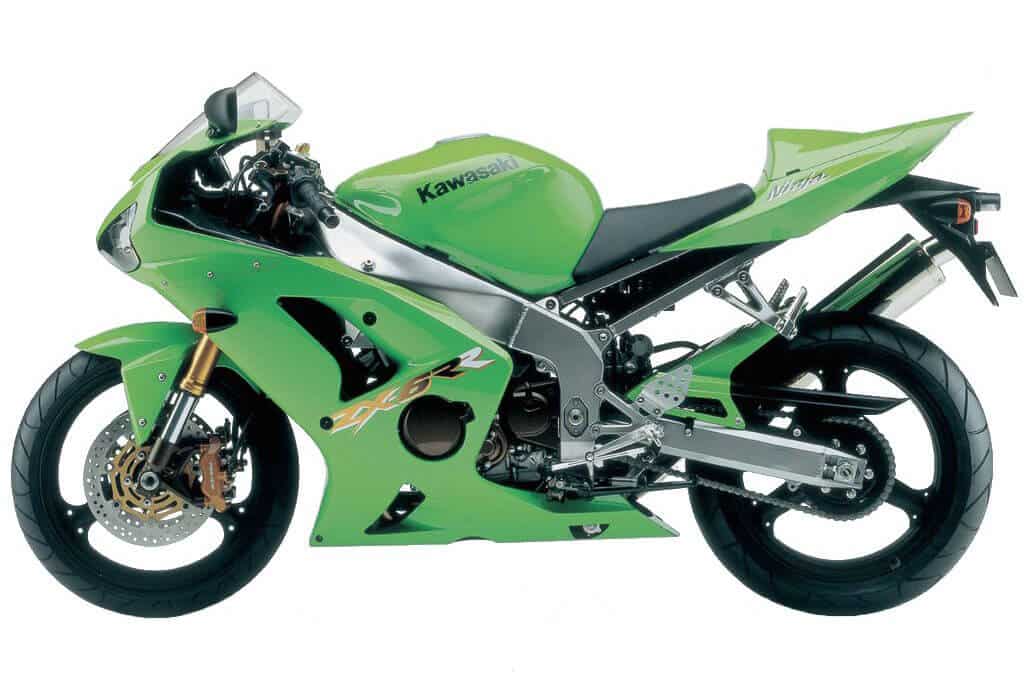
The Kawasaki ZX-6RR is based on the Kawasaki ZX-6R streetbike, but more oriented exclusively towards track use.
The engine in the ZX-6RR is a liquid-cooled, DOHC, 16-valve 599 cc inline four-cylinder engine with fuel injection — a relative rarity on small engines of the time. Kawasaki made a bunch of changes to the engine block and the breathing.
Inside the engine, Kawasaki reshaped the combustion chambers, redesigned the piston crowns, and coated the skirts with molybdenum to reduce friction and mechanical losses.
Kawasaki also reduced the size of the intake ports, enlarged the intake valves by 0.5mm, and changed the camshaft profiles to allow for more lift. The engine has a sky-high (particularly for the time) compression ratio of 13.0:1.
Kawasaki even changed the gear ratios for the oil pump to reduce mechanical loss, letting the engine rev higher, and made changes to the six-speed transmission to maximise torque.
The result is an engine that revs very high and makes a lot of power despite its diminutive size! It makes a peak of 86.8 kW / 118 bhp at 13200 rpm, and peak torque of 64.4 Nm / 47.5 lb-ft at a very high 12000 rpm. This is is an engine designed to sing.
Kawasaki of course gave the ZX-6RR fully adjustable suspension, with a 41 mm inverted cartridge fork up front, and a bottom-link uni-trak suspension unit at the rear.
The front brakes are twin 280 mm discs with 4-piston calipers. The brakes are radial-mounted and the discs are semi-floating. It’s very high-spec, again for the time and for this class of bike. It just shows how committed Kawasaki was to making this a track-ready bike.
The Kawasaki ZX-6RR was sold alongside the first gen ZX-6R 636, which was the larger capacity more street-oriented sportbike.
Manual for the Kawasaki Ninja ZX-6RR
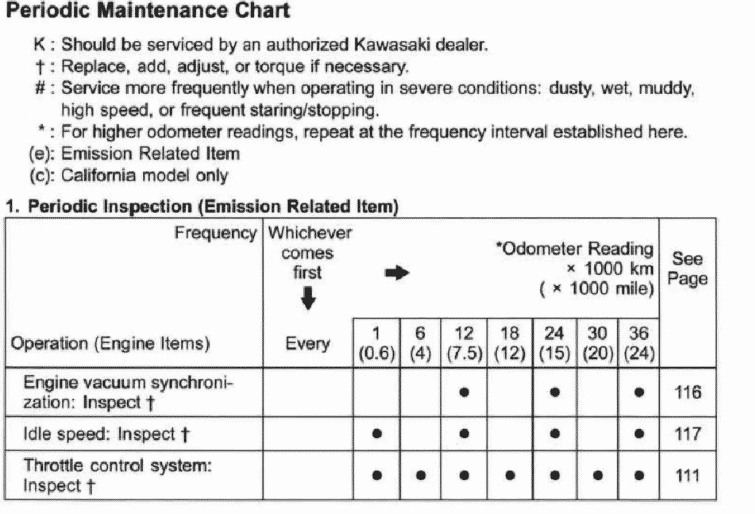
The above maintenance schedule comes directly from the user’s manual for the 2004 Kawasaki Ninja ZX-6RR, which is available here.
